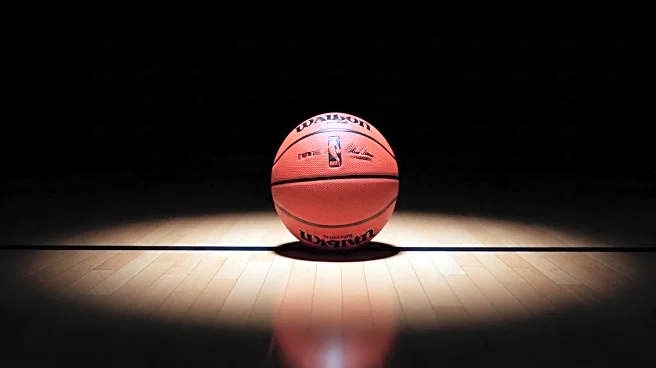What's Happening?
Kelsey Plum, a prominent player in the WNBA and First Vice President of the WNBA Players' Association, has publicly addressed the ongoing controversy surrounding WNBA Commissioner Cathy Engelbert. The controversy stems from player dissatisfaction with the league office, particularly regarding the Collective Bargaining Agreement (CBA) negotiations and perceived inadequate officiating during the 2025 season. Napheesa Collier, another WNBA star, recently criticized Engelbert for comments she allegedly made about player compensation and the league's media rights deal. Collier's remarks have sparked widespread support from fellow players, including Plum, who emphasized the need for collaborative efforts between the league and players to resolve these issues. Plum highlighted the combative nature of current discussions and expressed hope for mutual progress.
Why It's Important?
The controversy involving Cathy Engelbert and the WNBA players is significant as it highlights ongoing tensions within professional women's basketball. The players' dissatisfaction with the league's handling of CBA negotiations and officiating could impact the league's reputation and its ability to attract and retain top talent. The players' call for better compensation and accountability reflects broader issues of equity and fairness in sports. As the WNBA continues to grow in popularity, resolving these disputes is crucial for maintaining player morale and ensuring the league's long-term success. The situation also underscores the importance of effective leadership and communication in sports management.
What's Next?
The next steps in resolving the controversy may involve further negotiations between the WNBA Players' Association and the league office. Players like Kelsey Plum and Napheesa Collier are likely to continue advocating for improved conditions and transparency. The league may need to address player concerns more directly to prevent further erosion of trust. Stakeholders, including team owners and sponsors, may also play a role in facilitating dialogue and finding solutions. The outcome of these discussions could set a precedent for future labor relations in women's sports.
Beyond the Headlines
The controversy may have deeper implications for the WNBA and women's sports in general. It raises questions about the valuation of female athletes and the systemic challenges they face in achieving parity with their male counterparts. The situation could prompt broader discussions about gender equity in sports, influencing public policy and societal attitudes. Additionally, the players' unified stance may inspire other athletes to advocate for their rights, potentially leading to shifts in sports governance and management practices.










